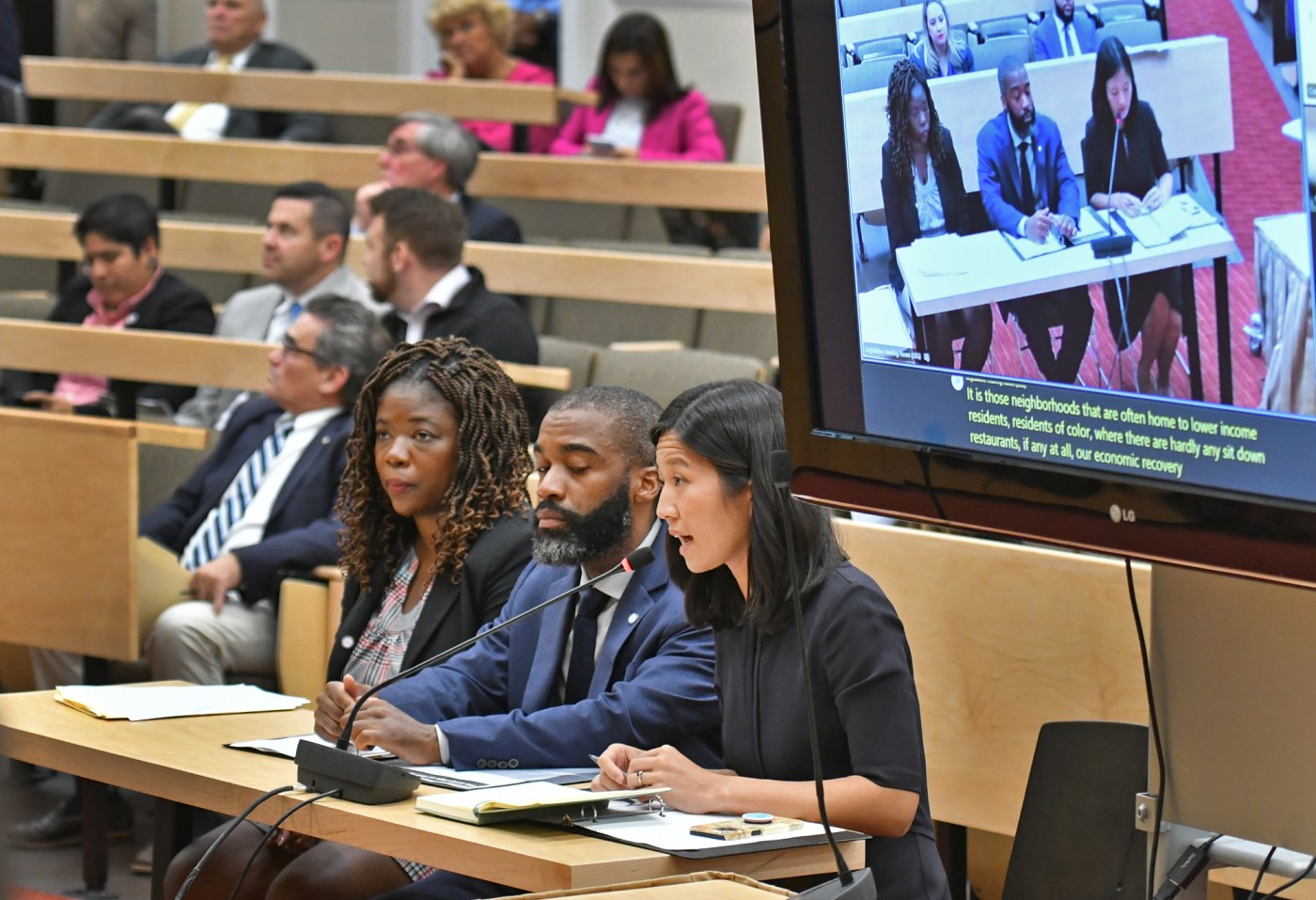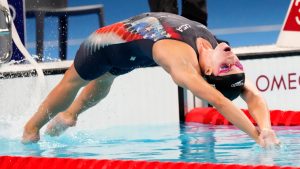
Massachusetts Senate OKs bill to create 264 new liquor licenses in Boston: ‘Long overdue’
State lawmakers said the 264 additional liquor licenses Boston would gain under legislation approved by the Massachusetts Senate on Monday would deliver a significant boost to the city’s economy, particularly in minority neighborhoods.
The bill that cleared the Senate expands on the 205 new licenses approved by the House in late May, and, pending a consensus agreement between the two chambers, would deliver Boston its first major expansion of alcohol-serving establishments since 2014, when 70 liquor licenses were added via another city home rule petition.
“We must be intentional when we discuss the closure of the racial wealth gap, prevalent throughout our state but most notably, in Roxbury, Dorchester, Mattapan and Hyde Park, where we see lack of opportunity and access for those in the hospitality industry,” state Sen. Liz Miranda, who sponsored the initial bill and represents parts of Roxbury and Dorchester, said in a statement to the Herald.
“Restaurants are opening, but struggling to keep their doors open without a license to sell beer, wine or liquor,” Miranda said. “This bill is vital in restoring the deep cultural hubs we’ve had in our district’s past. I remember when Blue Hill Avenue was a vibrant place with restaurants and safe, neighborhood nightlife, and I believe it can be that again.”
The Senate bill would target 234 non-transferable licenses to 13 ZIP codes in Roxbury, Dorchester, Mattapan, East Boston, Roslindale, West Roxbury, Hyde Park, Charlestown, Jamaica Plain, and the South End, the latter of which was not one of the neighborhoods included in the House version, a Senate official said.
Each of the 13 ZIP codes would receive six new non-transferable licenses every year for three years, two of which would be restricted to wine and malt sales and another four of which would be for the sale of all alcoholic beverages.
Three licenses would be restricted for Oak Square and Brighton, while 15 community licenses would be targeted towards nonprofits, small theaters, and outdoor spaces. Quasi or government agencies in Boston would have access to one of the community licenses, a Senate official said.
Another 12 licenses would be considered unrestricted, or transferrable.
On the Senate floor, Miranda spoke not only of efforts to revitalize the city’s nightlife scene, but to counter the “secondary liquor license market” that has “created an ecosystem in our city, where, only if you’re affluent, own property or already own a restaurant, can you actually maybe possibly afford the cost of operating a license.”
When a bar or restaurant shuts down, a liquor license is sometimes sold by businesses on the so-called secondary market, private transactions that, driven by high demand and scarce supply, can hit “$500,000, $600,000 and sometimes as high as $700,000,” according to testimony from Miranda.
Underserved communities are hit hardest by that dynamic, according to Miranda, who said that only 2% of the city’s roughly 1,400 liquor licenses are held by Black-owned businesses.
“This is going to bring great economic opportunity and equitable economic development to businesses in our city that deserve it,” state Sen. Nick Collins, whose district includes South Boston and parts of Dorchester, the South End and Roxbury, said by phone during the day’s Senate session.
Collins called the bill “long overdue.” Greater access to liquor licenses could add roughly 30% additional revenue to a restaurant’s bottom line, he said, citing Senate conversations with owners, and would also increase the meals tax in Boston.
The bill was borne out of a home rule petition introduced by Boston City Councilor Brian Worrell, passed by the Council in April 2023, and signed by Mayor Michelle Wu, who joined Worrell in lobbying for the legislation on Beacon Hill last October.
Related Articles
Boston eying new plan to tackle revived Mass and Cass drug market: ‘We’re in a very tough spot’
Boston’s Charlestown neighborhood gets public pool back after two-year wait
Boston Mayor Wu’s plan to increase commercial tax rates advances in Legislature
As crowds and drug use return, Boston city councilor says Mass and Cass approach has been a ‘failure’ and needs to be reevaluated
As mayor pitches higher business taxes, analysis shows Boston favors homeowners at among highest rates in the country
Unlike the House version, the Senate bill expands on the 250 non-transferrable liquor licenses the city was initially seeking via the petition.
Worrell said Senate approval puts the bill’s proponents “one step closer to the finish line.”
“It’s great to see the Senate increasing the total number of non-transferable, ZIP Code-restricted licenses as we know this is a proven tool that boosts neighborhood economies and the demand exists,” Worrell said in a statement. “All of our neighborhoods deserve a thriving restaurant scene, and this will move us in that direction.”
The bills will go to a conference committee on the eve of the end of formal session on July 31, where the House and Senate will aim to agree on a consensus bill, Worrell’s office said.
“I’m grateful to the Senate for advancing this important legislation that will help provide economic opportunity to neighborhoods across the city,” Mayor Wu said in a statement, “and look forward to continuing to work with the Legislature as it moves forward.”
In the same vein, the Senate is also weighing bringing back “happy hour” to Massachusetts, per a provision included in its economic development bill.
The proposal is opposed by the Massachusetts Restaurant Association, which said in a statement that “implementing happy hour is not economic development,” and would hurt lower-performing operators that will keep discounting prices in a “desperate” attempt to stay competitive, which will only enhance their financial difficulties.


